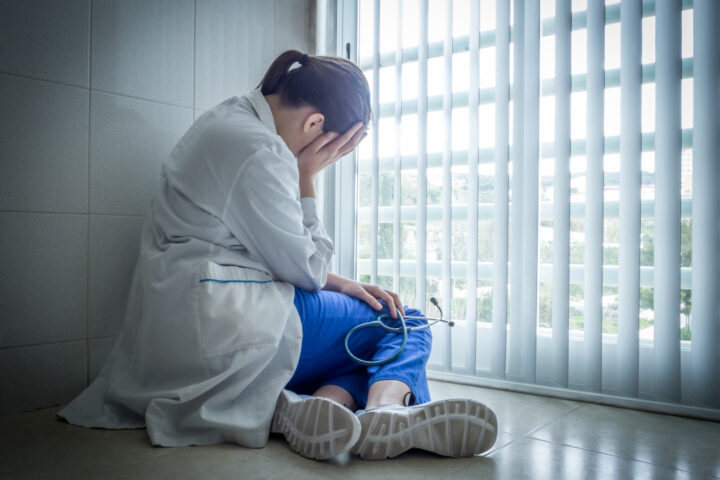(SPOILER ALERT: At HealthXPh, we have embraced social media in healthcare 🙂 )
Read about social media “push” in healthcare? HealthXPh has been nitpicking social media and emerging technologies in healthcare since 3 months ago. HealthXPh got the attention of the medical community but most physicians in this country still shun social media in healthcare. Why? There’s a myriad of reasons for this but the evolving digital health environment show telltale signs of social media knocking at the doorsteps of healthcare in the Philippines. Here’s some compelling reasons why the Filipino physician might embrace social media in healthcare.
1. Social media is changing the landscape of physician- patient engagement.
As in any other relationship, a doctor-patient engagement relies heavily on communication. Digital technology is changing how we communicate with each other. Social media is fast becoming a communication highway. I’m sure some patients and physicians have used or is using social media for healthcare purposes. We get health questions via facebook or clinic appointment schedule via chat. A colleague “tweeted” a referral. Patient support groups are on facebook or Google. We point social media inquiries to appropriate physicians or our clinics. These healthcare “transactions” may seem superficial to many but definitely it impacts physician-patient engagement.
2. Patients search health information online, including some social media sites.
You probably been into forums or social media groups where questions mainly revolved around health and healthcare. Irked by the misleading health information on social propagated by unscrupulous “medical experts”? Cried foul? There are two critical facets in health education- getting the necessary (accurate) health information and passing on the good ones via health education. Even if we don’t participate in these sites there’s no stopping patients from getting or spreading health information via social media sites. If you find out your patients are getting (and probably passing on) “bad” health information on social media, will you leave them there by staying on the “sidelines” and do nothing about it?
3. Humans are innately social. Health is social. Philippines is the world’s top social media user.
Filipinos are known to be a very social.It’s not surprising therefore that Philippines is on top of the world in terms of social media usage by percentage population. Social media is so intertwined with our daily lives that some national events have been cooked and hacked via social media. Moreover, this digitally connected generation spent more time on facebook than anywhere else. It’s not very hard to think that healthcare is one of the most discussed info in social media.
4. Social media has leverage the power of the voice for healthcare stakeholders
Notice how social media changed landscape of influence in healthcare? The recent BIR tax campaign directed at professionals took the “headlines” of timelines and status updates. “Loud” discussions occupied social media sites. Voices from physicians not in your sphere of influence popped out of nowhere and swooned you into action, or dissention. It may not have been that successfully loud to gather up the huge support needed but it definitely affected the way we think and behave towards healthcare issues. The bottomline is that healthcare stakeholders used social media to spread advocacies, rally support and push for changes in health care . Social media has given us, a voice.
5. Social media gave us a platform for health education.
There is no denying we need to up this country’s health literacy. Taking care of our patients entails health education. Health education is part of our treatment strategy. Social media has tremendously increased our reach, at a much cheaper expense.This offers huge potential for mass health education beyond clinic space. The challenge for health educators is harnessing this platform to augment health teachings in the clinics.
Social media healthcare in the Philippines is here and it will stay for quite sometime. The question is not anymore when, but how should we utilize it.
(If you are a Filipino physician practicing in the Philippines, please join our survey on social media usage of healthcare professionals here. It will only take less than 5 minutes of your time. 🙂 )
Resources
How to prepare for and execute an online presence in healthcare
http://www.howardluksmd.com/orthopedic-social-media/physician-social-media-presence-
Social Media Engagement: The Surprising Facts About How Much Time People Spend On The Major Social Networks
http://www.businessinsider.com/social-media-engagement-statistics-2013-12#ixzz2zdUwqd9w
Philippines named social networking capital of the world
http://asiancorrespondent.com/54475/philippines-named-the-social-networking-capital-of-the-world-indonesia-malaysia-amongst-top-10/
24 Outstanding Statistics & Figures on How Social Media has Impacted the Health Care Industry –
http://getreferralmd.com/2013/09/healthcare-social-media-statistics/#sthash.M1zpASgb.dpufhttp://getreferralmd.com/2013/09/healthcare-social-media-statistics/
Health Fact Sheet
http://www.pewinternet.org/fact-sheets/health-fact-sheet/
As a novel communication tool, Social Media will improve doctoring.http://www.drjohnm.org/2013/04/as-a-novel-communication-tool-social-media-will-improve-doctoring/






